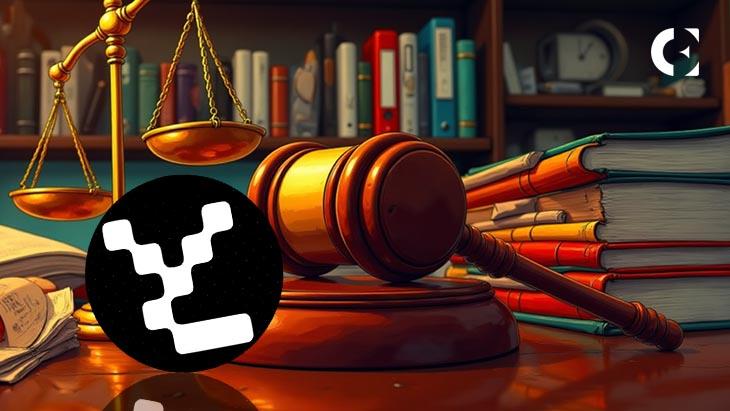線上客服
客服團隊
剛剛
親愛的 LBank 用戶
我們的線上客服系統目前遇到連線故障。我們正積極修復這一問題,但暫時無法提供確切的恢復時間。對於由此給您帶來的不便,我們深表歉意。
如需幫助,您可以透過電子郵件聯繫我們,我們將盡快回覆。
感謝您的理解與耐心。
LBank 客服團隊

A federal court in California has ruled that Bored Ape Yacht Club (BAYC) NFTs are not securities, closing a class-action lawsuit that had challenged the legal status of one of the most well-known digital collectible projects. The decision ends years of uncertainty surrounding Yuga Labs’ compliance with U.S. securities law and marks one of the simplest judicial statements yet on non-fungible tokens’ (NFTs) regulatory classification.
Judge Fernando M. Olguin of the U.S. District Court for the Central District of California dismissed the lawsuit against Yuga Labs, concluding that Bored Ape NFTs do not satisfy the legal requirements of a security under the Howey test. The ruling, issued Thursday, found no “common enterprise” linking NFT holders’ financial success to Yuga Labs’ operations.
The court stated that the NFTs were purchased through third-party marketplaces such as OpenSea and Coinbase, rather than an exchange operated by Yuga Labs. This difference distinguishes BAYC from prior cases, such as Dapper Labs’ NBA Top Shot NFTs and DraftKings NFTs, where courts found closer operational ties between issuers and secondary market activity.
Olguin’s ruling also noted that Yuga Labs’ receipt of royalties from secondary NFT sales further weakens any alleged shared financial structure. The company earned a fixed fee each time a Bored Ape changed hands, regardless of whether the buyer made a profit or incurred a loss. This arrangement, the judge stated, “decoupled” the financial interests of NFT holders and the company.
Creator royalties, which can reach up to 10% of each resale, have been a standard feature across NFT markets. In this case, the court found that such royalties pointed away from the existence of an investment contract since Yuga Labs benefited from sales activity without relying on holders’ speculative gains.
The decision follows multiple investigations into NFT projects by U.S. regulators. Earlier this year, the Securities and Exchange Commission (SEC) closed inquiries into both Yuga Labs and OpenSea, signaling a shift toward limited enforcement in the NFT sector.
剛剛
親愛的 LBank 用戶
我們的線上客服系統目前遇到連線故障。我們正積極修復這一問題,但暫時無法提供確切的恢復時間。對於由此給您帶來的不便,我們深表歉意。
如需幫助,您可以透過電子郵件聯繫我們,我們將盡快回覆。
感謝您的理解與耐心。
LBank 客服團隊